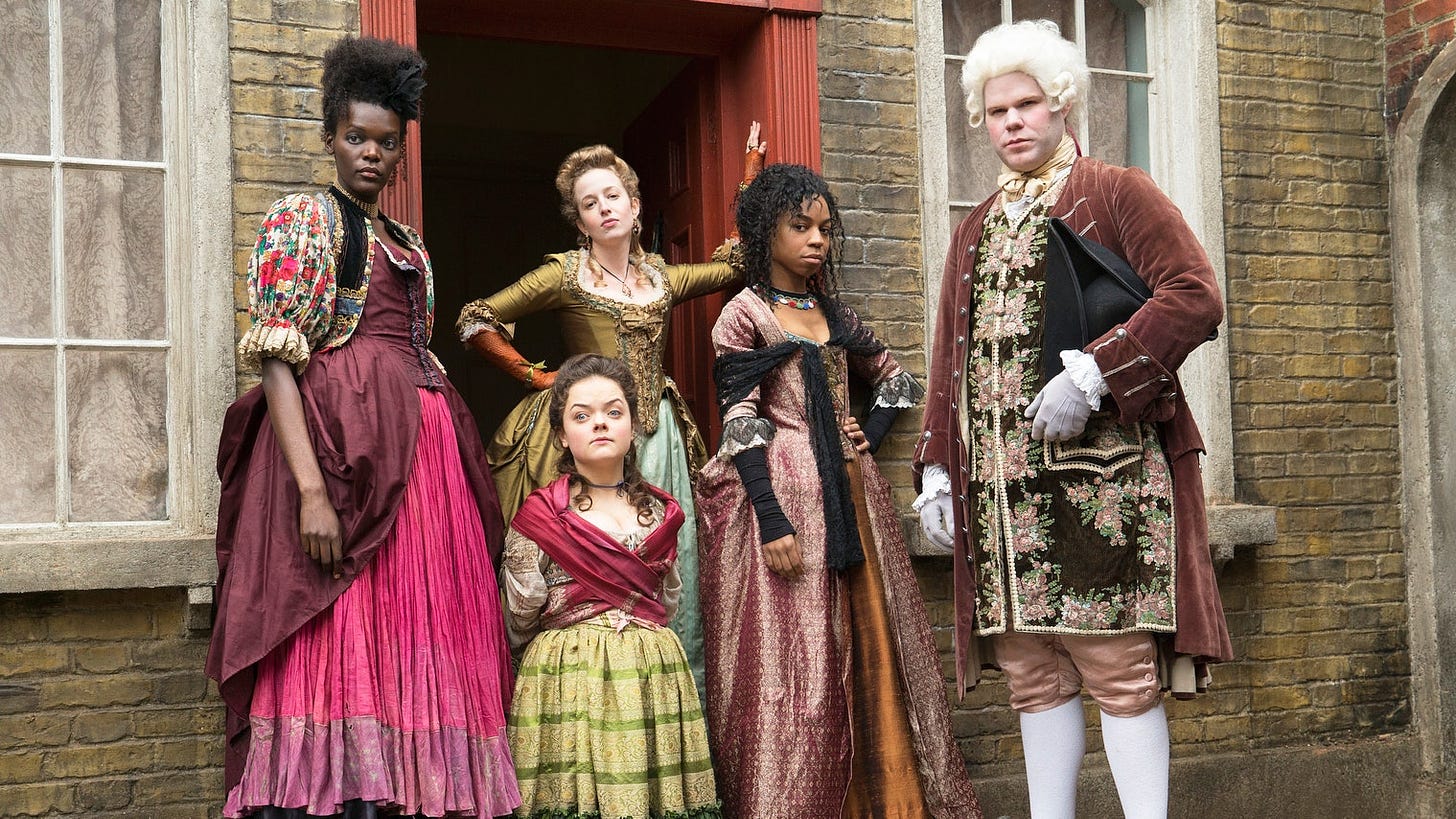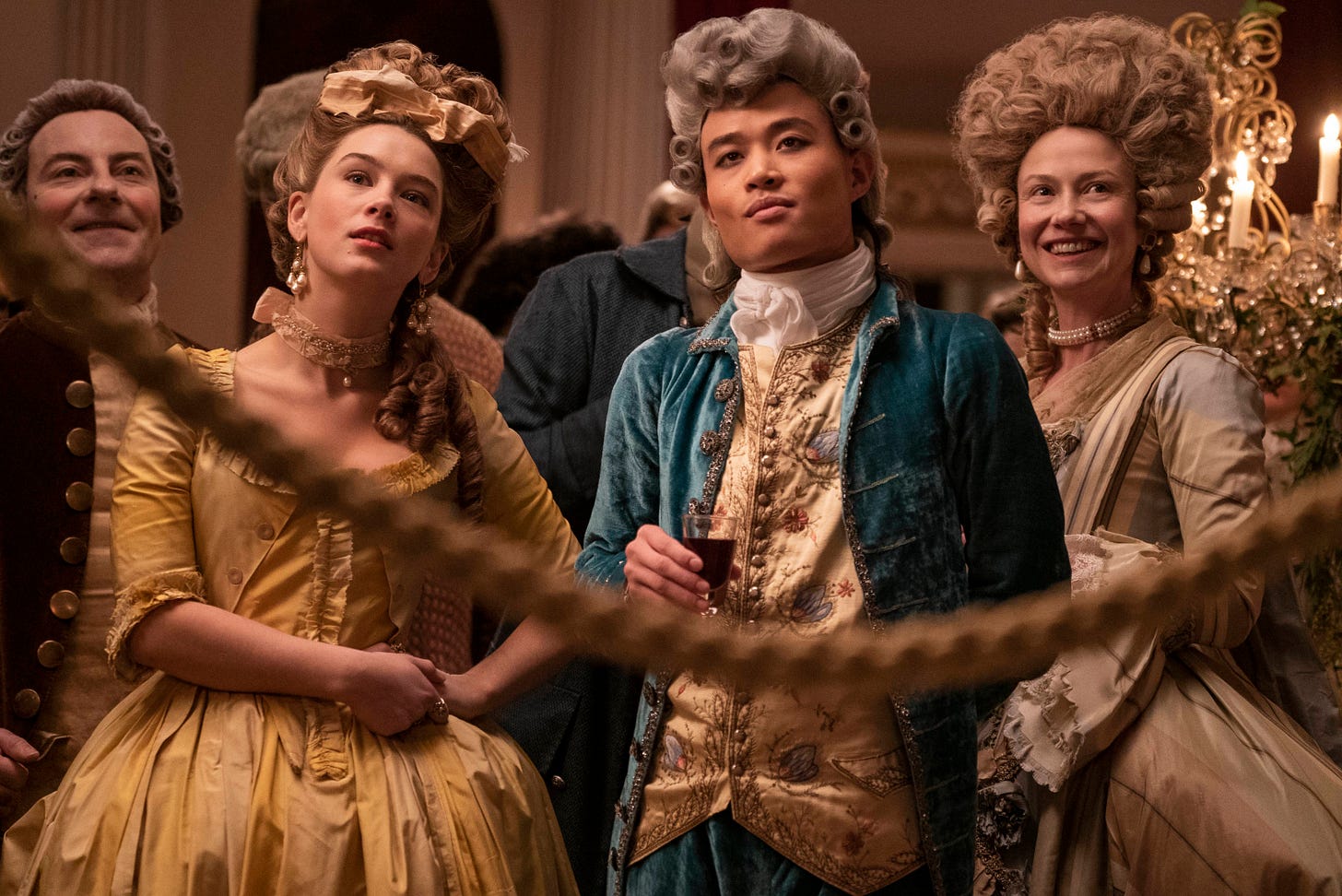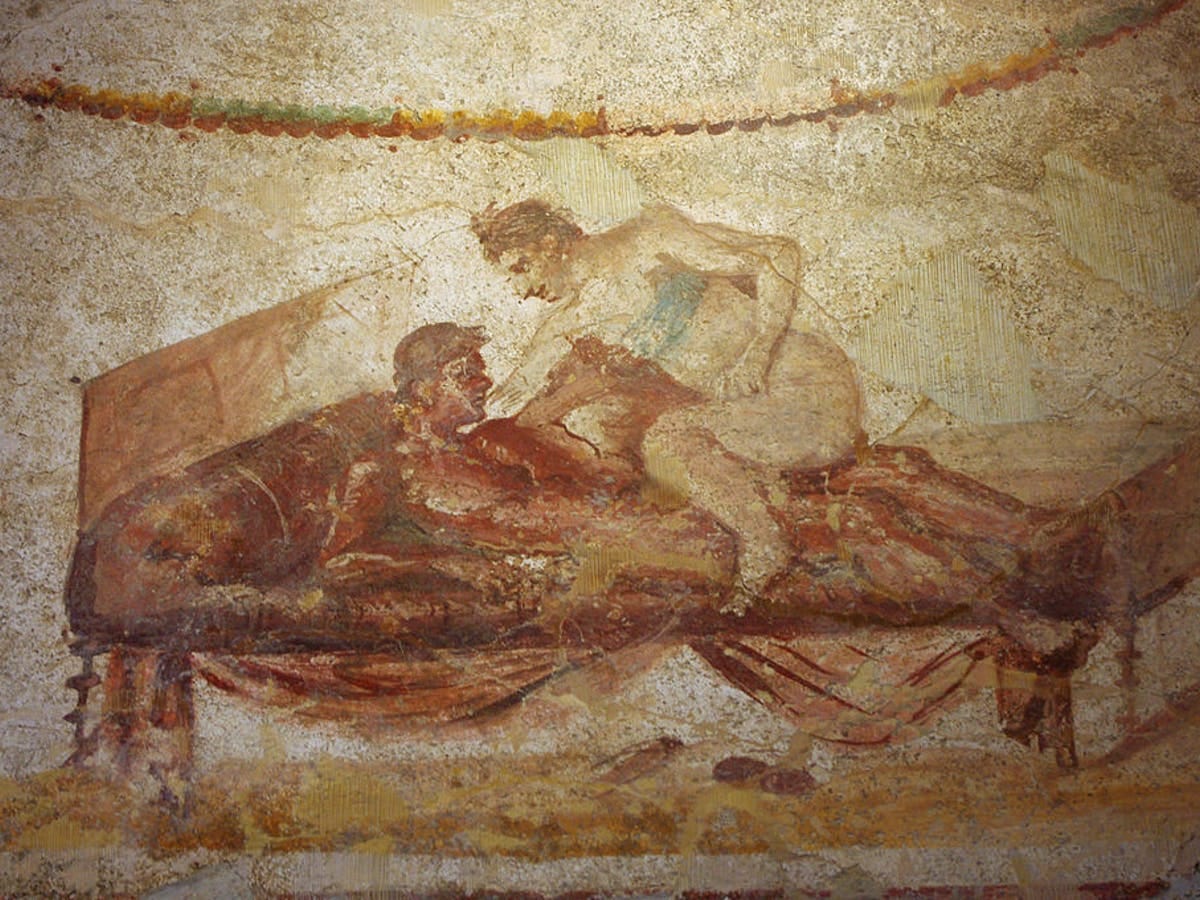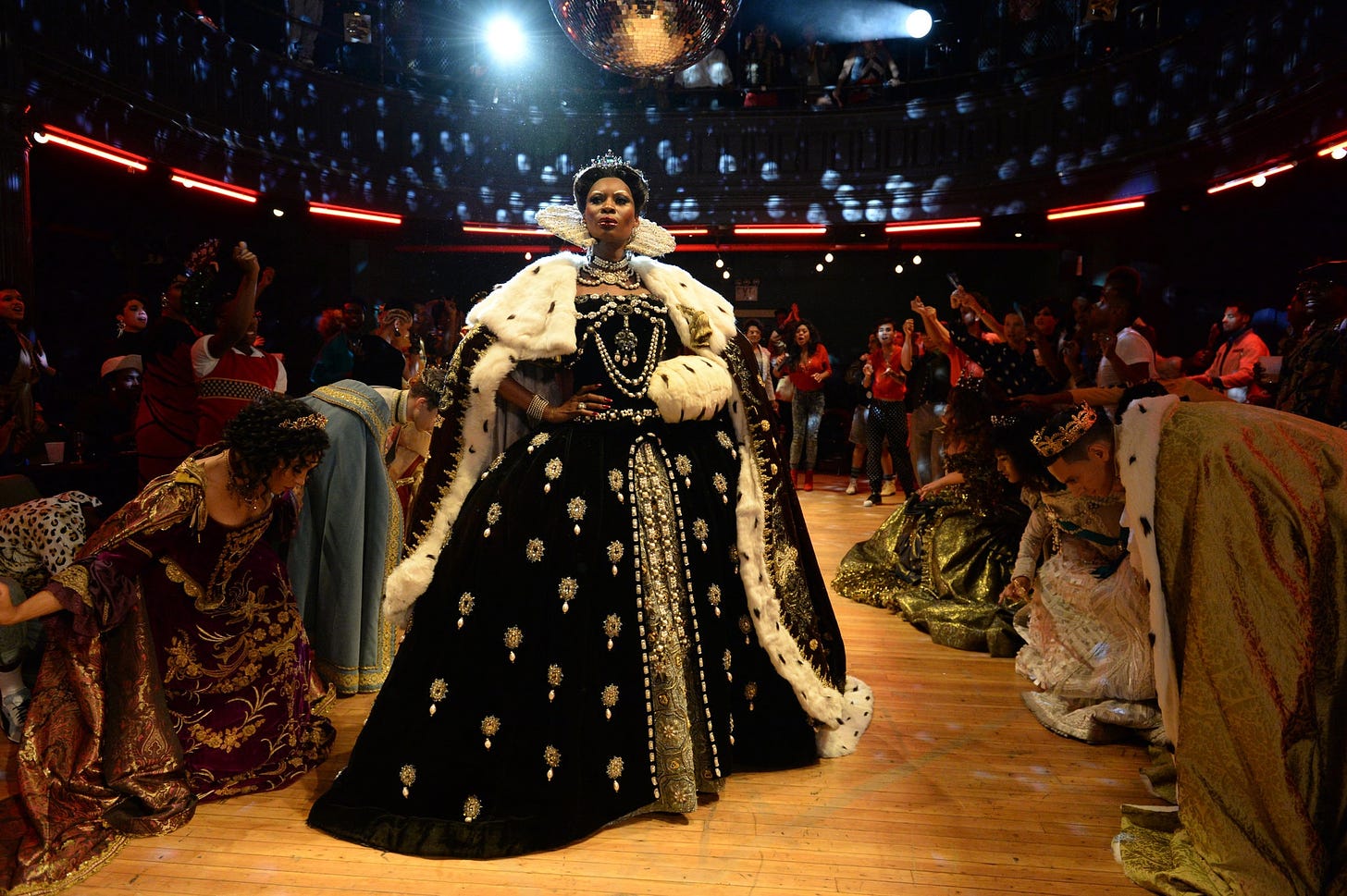History for people who are sick of queens and moguls
Fans are going nuts over The Crown, but I suggest you watch another TV series that brashly exposed a different side of British history: Harlots. It’s the violent, explicit tale of two brothels in 18th century London, whose fates ultimately decide the future of Parliament. Created by Moira Buffini and Alison Newman for Hulu, Harlots shifts our focus from the center to the margins of society, and epitomizes a new trend in historical storytelling where social power isn’t always located in mansions and palaces. It comes from the streets, the bars, and the brothels.

I’m a sucker for hair-and-hat dramas, with their sumptuous costumes and sets that recreate a forgotten time. The problem is that most period pieces feel so far removed from reality that they’re almost fairy tales, complete with omnipotent kings and queens who stomp their tiny feet. It may be entertaining, but it’s also annoying for those of us who want to know what everybody else was doing 300 years ago.
The London we see over the course of three seasons in Harlots would be unrecognizable to people whose idea of the past has been shaped by Masterpiece Theater and snippets of Samuel Johnson. Its streets are thronging with people of color, sex workers, and GLBT folks whose existence is usually ignored in period dramas. We follow the lives of Margaret Wells, the madam of a successful brothel, and her adult daughters Charlotte and Lucy, two of the most sought-after whores in the city.
Margaret’s husband William North is a free Black man whose mother was an African slave, and the couple’s mixed-race son is one of many children we meet who could be kidnapped any time by slavers who sweep London’s streets for “goods” to sell to America’s plantation owners. Still, the greatest danger to Margaret’s family is her nemesis, Lydia Quigley. Formerly Margaret’s madam, Lydia owns a slightly more posh brothel and wants to destroy Margaret’s upstart business.
From Ivory Tower to streaming TV
Here, at last, we have a history that doesn’t feel like a fairy tale. It foregrounds the struggles of ordinary people without titles, and acknowledges that England’s colonial incursions have turned London into a city full of immigrants and refugees from Africa, Asia, and the Americas. And that’s no accident. Harlots also reflects a change in the way historians approach the past. Scholars like Brandeis University’s Dorothy Kim are now writing about the prominent role that Black and Brown people played in British nation-building.
Meanwhile, University of Washington classicist Sarah Levin-Richardson has published a book exploring the life of Pompeii’s brothel through the lens of archaeology. Academics are, as Kim puts it, decolonizing history. And now, with shows like Harlots, popular culture is joining in.
Another sign of this crossover from the Ivory Tower to streaming TV is that Harlots always emphasizes its characters’ agency, while never forgetting the opposition they face. The epic backstabbing action between Margaret and Lydia is like the battle between two powerful entrepreneurs trying to corner an elusive market. Like media executives today, Margaret and Lydia are providing rich Londoners with entertainment, and thus their fortunes are tied to the wealthy people who patronize them. They may be outcasts, but they have the ears (and other body parts) of politicians, aristocrats, and barristers.

Margaret and Lydia want more than a steady stream of money; they want political influence. For Margaret, that means giving her girls some protection from rapists and abusers, thanks to a sympathetic constable with a taste for one particular apple-cheeked lass. Lydia, however, aims higher. She’s scheming to gain entrance to society by providing a group of aristocrats with virginal women to sacrifice at their Marquis de Sade-flavored gentlemen’s club. Both women know secrets that will affect the political futures of several prominent members of government.
Not a mirror
Most cozy shows about history relish the trope that the lower classes hold up a mirror to the rich, making the poor into parodies or sad shadows of their betters. Not in Harlots. Here, sex workers and politicians both have equal agency. They move through the same drawing rooms, working together in the same system, doing each other favors that affect the lives of street urchins and governors alike. Whores and escaped slaves are changing the world as surely as “great men” are — and in ways that are quite different.
We find a similar theme in the critically acclaimed 1980-90s period show Pose, which is about how popular fashion and art originated in clubs ruled by trans women and gay men of color. Like Harlots, Pose follows characters who move between the margins and the mainstream, making political changes in the process.
Period drama is always in some sense about the present day, because the way we remember our ancestors affects how we see ourselves. Right now, popular fiction and scholarly histories alike argue that we come from polyglot cultures shaped by communities at the top and bottom of the social hierarchy. We didn’t get to the twenty-first century by riding in the queen’s carriage, but on the backs of ordinary people, working to survive.
My next book is Four Lost Cities: A Secret History of the Urban Age. It's coming out in February 2021, and you can pre-order it now. You can find information and ordering links for my other books on my website, helpfully organized into science fiction and journalism. You can also follow me on Twitter or Instagram — or listen to Our Opinions Are Correct, the fortnightly podcast I co-host with Charlie Jane Anders. If someone forwarded this email to you, you can subscribe to it here.




